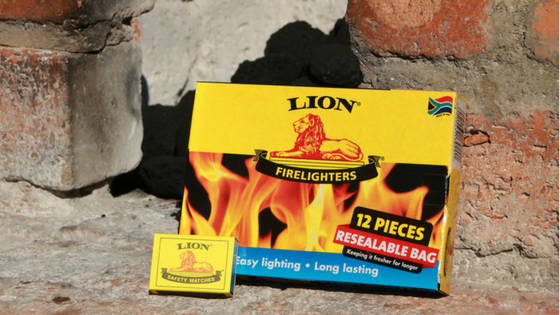Building a strong brand. You may be an SME with limited budget and much more room to grow, but we certainly hope that you don’t see brand-building as a waste of time or money. Building a strong brand can be a lot more beneficial for your growing business than you think.
Branding and Advertising Guru, Andy Rice, spoke to businesses at our March Grow Summit, on the importance of building a strong brand – regardless of the product you sell or the size of your business. This can be a very strong differentiator to set your business apart from competitors.
In this article, we share highlights of Andy’s brilliant talk and thoughts from other branding experts, to give a view of why your small businesses should be concerned about branding. Let’s start by explaining what a brand is.
What is a brand?
Forbes contributor, Jerry McLaughlin defines a brand as follows: “… your ‘brand’ is what your prospect thinks of when he or she hears your brand name. It’s everything the public thinks it knows about your name brand offering—both factual and emotional.”
Andy Rice explained it this way:
A #brand is a promise made, and a promise kept. This promise needs to be kept by all staff in your business. – Andy Rice #GrowSummit #Marketing
— GrowBusinessCoaching (@GrowCoachingSA) March 27, 2018
This is an important point to understand. Whatever promise you make to customers, that promise needs to be kept at all times. The promise gets kept (or broken) at each interaction a customer has with your company – when they hear someone else talk about your business, when they interact with your receptionist, or when they use your product or service.
Deb Gabor said it best in her book “Branding is Sex”: “Branding is so much more than a clever logo, pretty colours or a funny advertising campaign. Branding is about building strong emotional connections with customers.” You build that strong connection by consistently delivering on your brand promise.
Should your business focus on building a brand?
No matter how mundane or functional your product, there’s always an opportunity to differentiate your #brand by creating an emotional connection with users. – Andy Rice #GrowSummit
— GrowBusinessCoaching (@GrowCoachingSA) March 27, 2018
We certainly agree. Andy Rice made a reference to matches – a rather functional product that one would not expect to elicit any particularly strong emotional response from users. But when many South Africans think of matches, they think of Lion Safety Matches as their trusted matches brand of choice – to the detriment of competitors.
Some competitors have even gone to the lengths of creating counterfeit Lion Safety Matches in efforts to take advantage of this trust, and hopefully divert some market share away from the genuine Lion Matches brand. It’s a big compliment when competitors go to lengths of not just competing with you, but trying to be you – you’re clearly doing a lot right.
Do you have to advertise in order to start building your brand? If so, how best can you do this effectively?
Traditional advertising (radio & ads, billboards, etc.) has an important role to play in brand-building but it’s not a necessity for building a strong, consistent brand. Nevertheless, should you choose to advertise, know that not all ads are made equal. There are great ads that achieve the objectives of building a stronger brand and increased sales, and there are ads that fall flat on their face. A major reason why some ads fail is because they are only about the product, and fail to speak to the customer’s needs.
The purpose of #advertising is to demonstrate an understanding of your customers. It isn’t to advertise the features of your product. – Andy Rice #GrowSummit
— GrowBusinessCoaching (@GrowCoachingSA) March 27, 2018
This article shows seven great examples of well-known brands that have rolled out effective advertising campaigns. The central theme of all these ads is a demonstration of how well they understand their target customer. You don’t have to build your brand through similar traditional advertising (as we’ll explain in the next point), but if you choose to do so, remember to make sure that your advertisement demonstrates your understanding of your customer’s needs.
Does building a strong brand require a big marketing budget?
Big ideas to build your #brand don’t have to be expensive. But they do need to be bold and creative. – Andy Rice #GrowSummit #Marketing
— GrowBusinessCoaching (@GrowCoachingSA) March 27, 2018
As an SME, we understand that your marketing budget may certainly be limited, but more than big marketing and advertising budgets, what you really need to build a strong brand is creativity and consistency. Andy explains that it does not pay to be “ordinary” when it comes to branding and marketing. After all, everyone from your direct to indirect competitors is scrambling for a share of the wallets of the same customers you are targeting – how else will you stand out from the noise?
This article on 9 Brands that Thrive Without Traditional Marketing Budgets gives examples of how some brands have managed to creatively build customer loyalty without much marketing spend. One such example is cosmetics brand, Kiehl, which, in its early days, did not spend much on marketing. Instead, they focused on creating a truly special experience for their customers – and that helped to set their brand apart. GoPro, the high-definition camera company, is building a brand creatively but letting its customers do all its advertising for it.
From this, we can clearly see how some of the most successful companies have, in some way, focused on building strong brands. Regardless of your product, the size of your company or your marketing budget, your business can and should pay close attention to building a strong brand that forms an emotional connection with users. The rewards for doing so are endless. Building a strong brand is critical – especially when your business is small.




